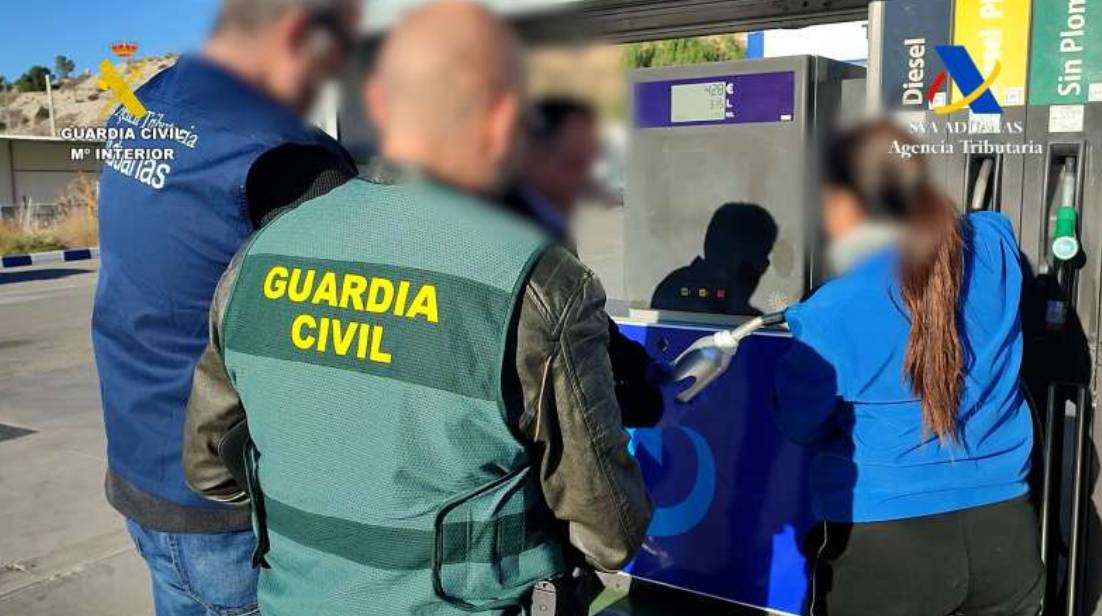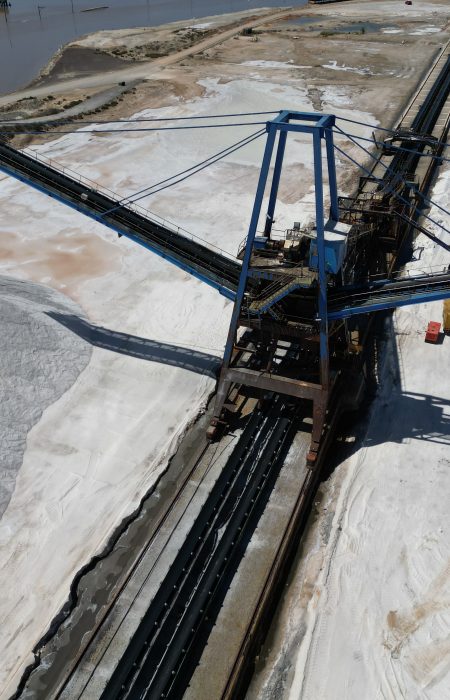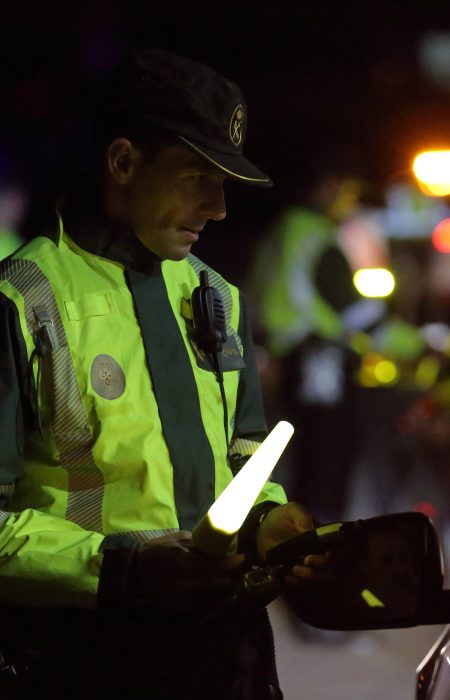The Guardia Civil and the Tax Agency’s Customs Surveillance Service have busted a criminal organisation that was smuggling contaminated fuel into low-cost gas stations in Almería, Murcia, and the Valencian Community to dodge restrictions and taxes.
According to sources inside the force, 18 persons have been arrested and another 14 are being probed as part of this operation, known as “Tenk,” while 40 firms have been linked to the criminal network.
The investigation began in 2023, in response to complaints from residents of La Hoya del Campo, Abarán (Murcia), concerning the continual passage of tanker trucks. Officers examined the accusations and discovered an irregular petrol station with over 70,000 litres of diesel, as well as machinery and tanks.
Agents discovered that this fuel, dubbed “designer fuel,” was a blend of diesel and other components added to change the physical properties of the original fuel and avoid paying taxes. In addition, they discovered triacetin, a product that does not match the standards for automobile diesel.
The modified fuel ultimately ended up to low-cost service stations in Murcia, Almería, Alicante, and Valencia. They discovered clues that led them to two further illegal petrol stations in the towns of Abanilla (Murcia) and Silla (Valencia).
Fuel is declared as lubricant to avoid taxes
The investigation discovered that these adulterated fuels originated in Latvia, Poland, Slovakia, Hungary, and Lithuania, among other countries, and that the shipments were declared as oils and lubricants rather than diesel in order to avoid controls on the circulation of products subject to the Special Tax on Hydrocarbons in the EU, as well as the accrual of Special Tax, VAT, and Corporate Income Tax.
The fumes generated by this fuel during burning can be harmful to the environment and public health. Irregular storage also increases the chance of spilling and can harm the end consumer by damaging the engines of private automobiles.
The two-year inquiry resulted in the identification of the numerous members of the criminal network as well as the “ghost” companies through which they operated. Some of the alleged businessmen acted as “front men,” providing information to set up corporations and bank accounts. These fictitious businessmen comprised Ukrainians, Latvians, French, and Spanish citizens.
The inquiry identified 40 companies in Murcia, Almería, Alicante, Albacete, Barcelona, Valencia, Madrid, Girona, Lleida, and Tarragona as part of the criminal network. During the operation, Judicial Police specialists from the Civil Guard and inspectors from the Customs Surveillance Area of the Tax Agency in Murcia visited eleven service stations and businesses.
To date, 18 peoples have been arrested, and 14 more are under investigation for alleged fraud, document falsification, public treasury fraud, Social Security fraud, money laundering, violating road safety standards, and membership in a criminal organisation.
One of the truck drivers was indicted for 26 road safety violations, including driving vehicles carrying dangerous commodities without a valid driving licence.









No Comment! Be the first one.